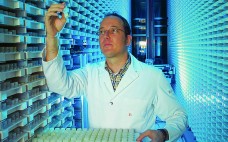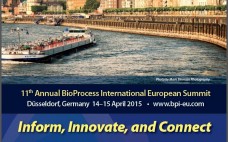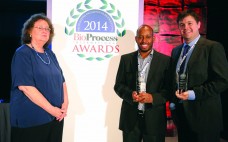The International Society for Cellular Therapy (ISCT) will host its 21st Annual Meeting at Caesars Palace Hotel and Convention Center, Las Vegas, NV, 27–30 May 2015. More than 1,200 industry and regulatory professionals, clinicians, scientists, and laboratory professionals are expected to attend. The program covers six plenary sessions, six workshops, three technical sessions, and more than 20 total track sessions covering such topics as advances in cell therapy research, commercialization strategies, quality and operations, and regulatory issues. BPI spoke with…
Author Archives: Maribel Rios
Special Report on Product Stability Testing: Developing Methods for New Biologics and Emerging Markets
Stability testing is a vital part of product development and is conducted throughout a product’s life cycle (Figure 1). Stability is part of a biotherapeutic’s quality target product profile, and results help analysts understand how critical quality attributes (CQAs) of both drug substances and products are influenced under specific conditions of temperature, relative humidity (RH), light, storage, pH, and other factors. Manufacturers conduct stability tests to determine degradation pathways and establish shelf lives and storage conditions of their products, for…
BioProcess Theater: Cell-Line and Process Development
Process development forms the core of BioProcess International’s coverage and interests. From cell-line engineering through seed-train and production cultures, the results of which are harvested and purified to yield a bulk drug substance, every biologic therapy and vaccine begins its life at small scale in a research and development laboratory.Cell lines may be mammalian, insect, microbial, or even plant-sourced (1). They all require different types of culture media and supplements. And purification options are many and diverse. Process intermediates are…
BioProcess Theater: Formulation, Fill and Finish
Fragile proteins and other biomolecules need protection as stable drug products. The larger a molecule is, the more difficult it will be to make, ship/store, and administer to patients. Biotech drug formulators have many concerns to juggle in their work, beginning with the physicochemical characteristics of an active molecule and including the reliability, cost, and availability of analytical methods; the array of excipients and adjuvants on the market; evolving delivery methods and devices; patient preferences and behavior, as well as…
BioProcess Theater: Clinical and Commercial Manufacturing
When it comes to clinical and commercial manufacturing of therapeutic products, outsourcing is an integral part of the biopharmaceutical industry. In the 21st century, product sponsors are increasingly relying on expert contract assistance in process development and production of clinical and commercial materials. Many companies are reaching beyond their local and national borders to extend networks of partnerships into emerging markets, particularly in Asia (1, 2). Most biologics are proteins, with monoclonal antibodies (MAbs) dominating the scene over a number…
Special Report – 11th Annual BioProcess International European Summit
Now in its 11th year, the BioProcess International European Summit will host more than 400 bioprocessing professionals from adademia and industry. Five major streams, seven keynotes, poster presentations, and an exhibition hall will take place 14–15 April at the Swissôtel Düsseldorf Neuss in Germany. Together, these opportunities fulfill the conference’s mission: to be the event where the biopharmaceutical industry connects to share new ideas and innovations across all phases of bioprocess development. In two days, the BPI European Summit will…
The 2014 BPI Awards: Recognizing Excellence in Bioprocessing
The mission of the BioProcess International publication has always been to deliver valuable industry information to the biotechnology community to continue on the path of scientific advancements, revolutionary technological applications, and strategic partnerships and collaborations. We are honored to cover this market and work with the many talented people sharing their expertise and projects. Now is the time for us to recognize and honor the outstanding people, organizations, and technologies that have significantly influenced and advanced the efficiency of biotherapeutic…
BPI Revisited: Improving IEX Throughput and Performance with Differentiated Chromatography Sorbents
This podcast features: René Gantier He discusses the changes in the industry since his May 2010 article Improving IEX Throughput and Performance with Differentiated Chromatography Sorbents was published.
Efforts Toward the Harmonization of Single-Use Standards
During the 2013 BioProcess Conference and Exhibition, in Boston, MA, BPI held a town hall on single-use standardizations and best practices. The purpose was to update attendees on the current status of standardization and harmonization of single-use systems from the perspectives of a number of user groups and discuss the approach of each organization to such efforts. James D. Vogel, founder and director of The BioProcess Institute, moderated a panel of representatives from the Parenteral Drug Association (PDA), the International…
Analytics for Modern Bioprocess Development
Twelve years ago, about the same time the US Food and Drug Administration was putting the finishing touches on its quality by design (QbD) and process analytical technology (PAT) guidelines, I wrote an article about breakthrough pharmaceutical educational programs. That article included the perspectives from a few members in academia of the future essential skills for pharmaceutical students. At the time, bioinformatics and computerized industrial process modeling were relatively new disciplines, but their importance in future manufacturing was clear. Several…








